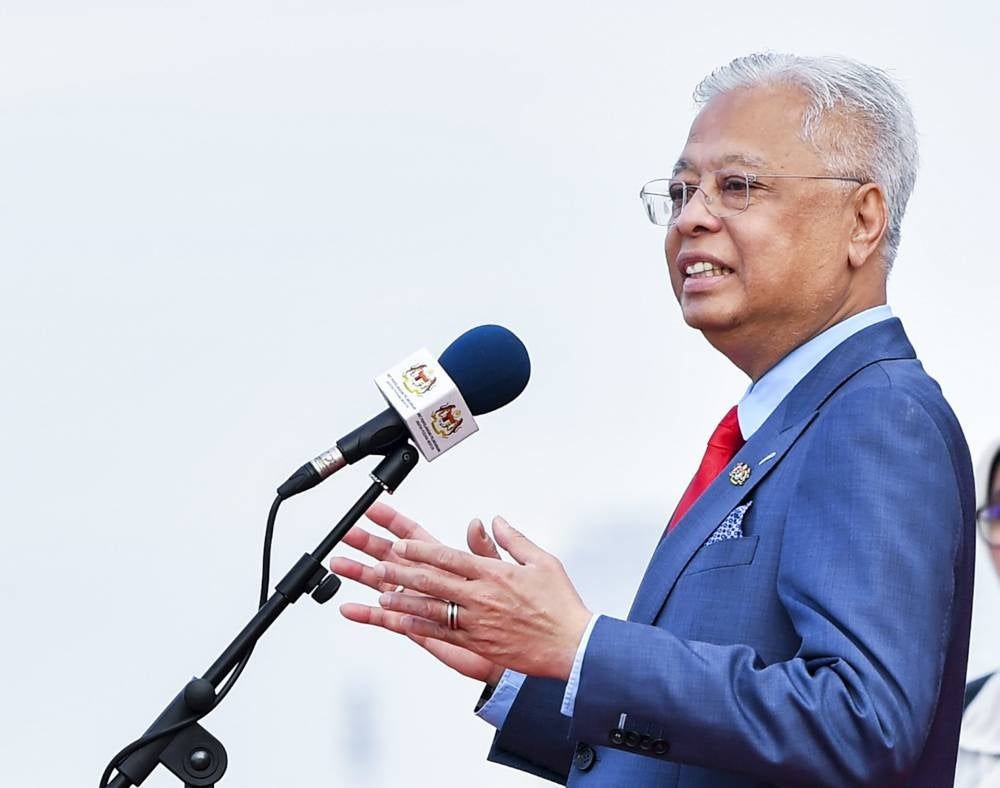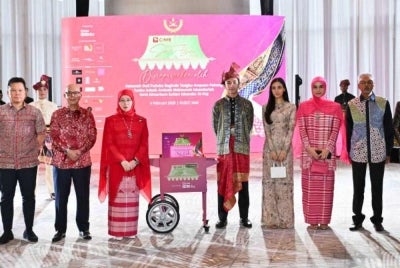Ismail Sabri builds bridge between government, opposition through mature politics
19 Aug 2022 10:27am

Ismail Sabri knew only political stability can help Malaysia bounce back and rise to all challenges. - Bernama Photo
And more than that, the reform of the political landscape mooted by Datuk Seri Ismail Sabri Yaakob through the MoU signed between the Federal Government and Pakatan Harapan (PH) in September last year has also successfully pacified the political crisis in the country.
Being appointed as the country’s ninth Prime Minister amid the political crisis and COVID-19 pandemic which clearly affected the lives and livelihoods of the people, Ismail Sabri knew only political stability can help Malaysia bounce back and rise to all challenges.
According to political analyst Assoc Prof Dr Mohd Izani Mohd Zain, the bold move taken by Ismail Sabri in making the pact with the opposition had contributed to Malaysia’s political maturity and transformation towards governance reform and economic recovery as ever before.
Through his observation, the senior lecturer of Universiti Putra Malaysia said the MoU had reduced the political heat in the country, which also led to the success of the constitutional amendment that prohibits Members of Parliament from switching parties.
Furthermore, Mohd Izani said the MoU also helped the government to enact and approve important policies for the country to move forward into the post-pandemic era in a more balanced and proper manner.
"When he introduced the MoU, we saw that it was a good move that could buffer the existing political uncertainty, it also brought the government and the opposition closer in facing the difficult situation in the country, setting aside their differences and working together to revive the economy.
"It also provides more platforms for the opposition to speak out and help the government. I see that the role of the opposition has also been elevated as useful opposition,” he told Bernama.
The MoU, which was inked less than a month after Ismail Sabri was appointed as prime minister, was also praised by Yang di-Pertuan Agong Al-Sultan Abdullah Ri'ayatuddin Al-Mustafa Billah Shah who was happy with the bipartisan cooperation between the government and the opposition.
In general, the people also appreciated the signing of the MoU, which includes the empowerment of the COVID-19 plan, administrative transformation, parliamentary reforms, freedom of the judiciary and the formation of a steering committee, as they believe that it would bring about political stability and a new dimension to Malaysian politics.
Opposition Leader Datuk Seri Anwar Ibrahim personally described the MoU as successful, thanks to Ismail Sabri’s positive attitude in working with the opposition, while Parti Amanah Negara president Mohamad Sabu viewed the MoU as a meaningful understanding.
"We discussed it in detail and took a while to finalise it. In a larger framework, we deliberated on the government’s point of view...in order to achieve political maturity, we must not fight on every issue. In matters that will benefit the people and the country, we surely gave our support. With the MoU, I think we have progressed in terms of political maturity in the democratic system.
"At least Datuk Seri Ismail (Sabri) gave us the space we were not given before,” said Anwar.
In shaping a better future, the Keluarga Malaysia government led by Ismail Sabri hit another political milestone when the amendment to the Federal Constitution seeking to prohibit members of Parliament from switching parties to ensure political stability and to avoid an endless political crisis in the country was passed by the Dewan Rakyat with more than two-thirds majority voice on July 28.
Mohd Izani described both the MoU and the constitutional amendment as a great success for Ismail Sabri and his government, thus respecting the mandate and trust of the people who elected their representatives.
Apart from that, the government is also working to regulate political funding with a bill being drafted and will be presented for discussion in the Cabinet before being brought to the engagement sessions with political parties.
Former president of the Bar Council K. Ragunath believes that the majority support for several important bills within a year of Ismail Sabri's administration proves the existence of good communication between the government and the opposition, an important thing for the country to take steps forward.
Other than the anti-party hopping law, he said the constitutional amendment to Malaysia Agreement 1963 (MA63) which had given recognition to the demands and special status of Sabah and Sarawak had also been passed unanimously in the Dewan Rakyat last December.
"What has been done by Ismail Sabri’s government within this short period of time gives the impression that the country can move forward with a brighter future if the good relationship between the government and the opposition can be maintained.
"In the future, I hope efforts to strengthen the institutions like MACC (Malaysian Anti-Corruption Commission), to separate powers of Public Prosecutor and Attorney-General, and to make Parliament independent can also be realised,” he added. - BERNAMA
Download Sinar Daily application.Click Here!














